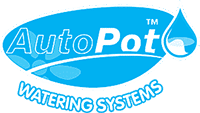

Tropical bounties sustained by ultra-fertile soils. Abundant sun, plentiful rain, and growth-stimulating humidity. You in a hammock. That’s probably a not-uncommon idea of equatorial island cultivation. It doesn’t always bear comparison with reality though.
The truth is that cultivating in places like the Maldives can be a real battle. High soil pH and groundwater EC, loss of expertise across generations, and occasional extremes of climate all make in-earth growing hard, non-hammock-based work.
As things deteriorate horticulturally you get a lack of self sufficiency, with economic, health, and environmental impacts to boot. This sure has spiralled from that island idyll we started out with! But fear not, paradise is still within reach.
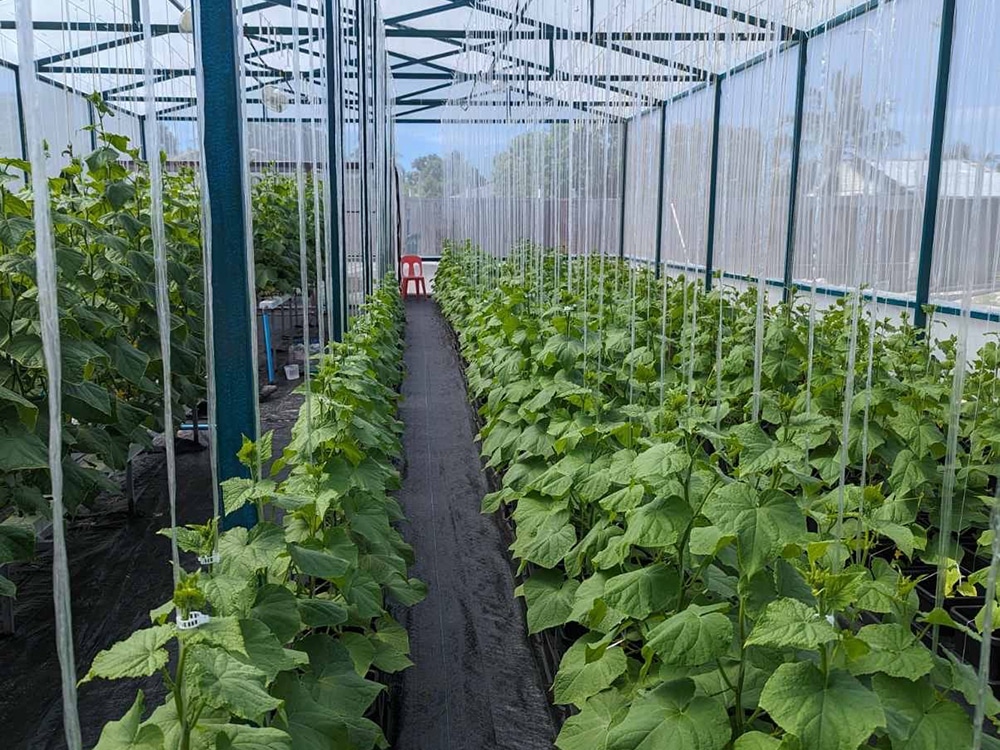
Prime Maldives are dedicated to turning around the horticultural fortunes of the island nation they call home. And they’re using AutoPot Watering Systems to do it. Mohammad Zahid and his team visit communities across the Maldives to consult, educate, and assist with every aspect of systems-based growing.
Far from simply setting up and setting off, Prime Maldives provide extensive, long-term support to farmers big and small. This attention to detail has paid dividends in terms of finding out what it takes to succeed with AutoPot in any environment. On Shaviyani and Faafu Atolls their expertise is now being put to use in some seriously exciting greenhouses.
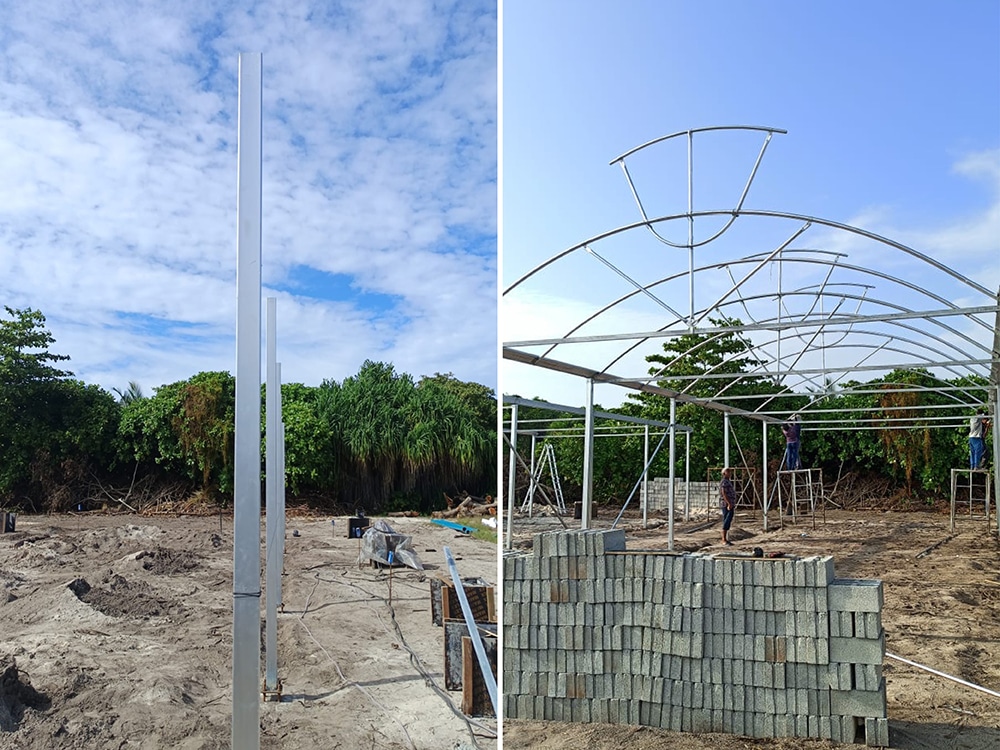
Multiple 1000 sq ft greenhouses are springing up at sites across the aforementioned locations. Within them are hundreds of easy2grow modules, fully assembled in a matter of hours, ready to to play home to much needed crops.
Here the principal harvests will be cucumbers but all manner of in-demand produce can be, and are being, grown using AutoPot in the Maldives. Over to Zahid, ‘the most in-demand crops are banana, watermelon, cucumber, tomato, and lettuce, we have farmers using AutoPot to grow all of these.’ Because the systems can be based or moved to indoor and semi-indoor locations they can also offer levels of productivity unparalleled by in-earth cultivation.
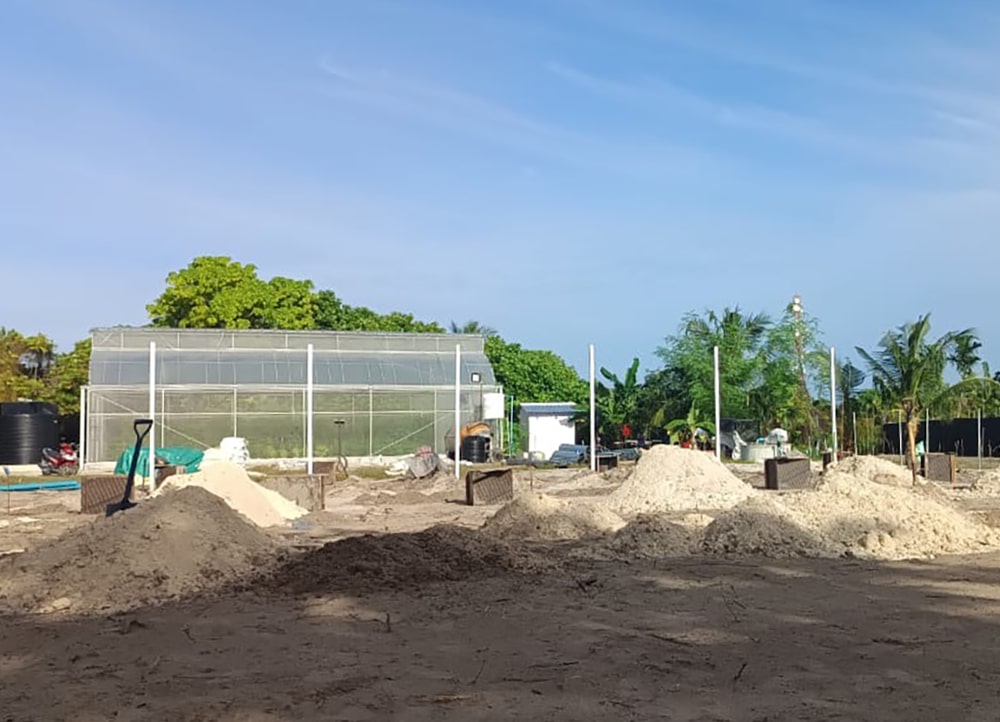
With the systems covered there really is nothing to prevent year-round growing. This gives farmers yet another significant boost in their efforts to supply Maldavian markets themselves. As Zahid himself says, ‘with the greenhouses, year-round growing will be easy. Indoor growing conditions are relatively simple to manage and except for the rainy season (which is from June – August) farmers don’t find much difference growing in terms of the effects of weather.’
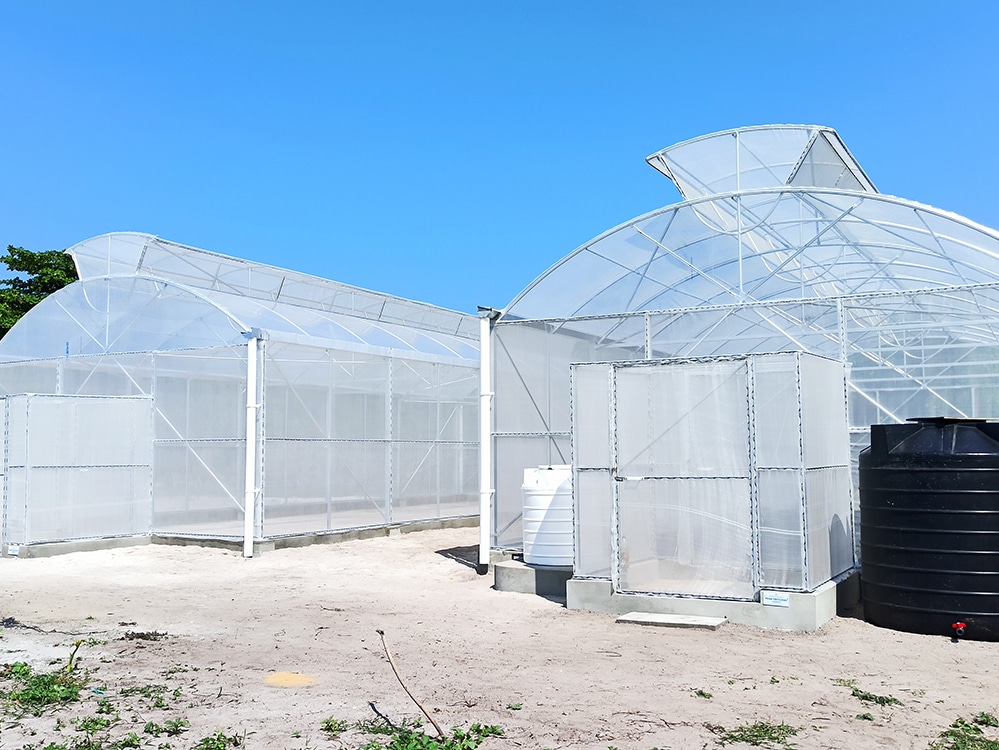
By using AutoPot, Maldavian farmers can also sidestep the issue of growing in the Maldives inhospitable earth. ‘Maldivian soil is made of weathered coral and very little organic matter. As a result the calcium carbonate content is very high and the pH is around 8.5. The soil itself is not suitable for any kind of growing.’ But if that soil is no use in the ground it won’t be much use in a pot either. So what do the guys pot up with instead?
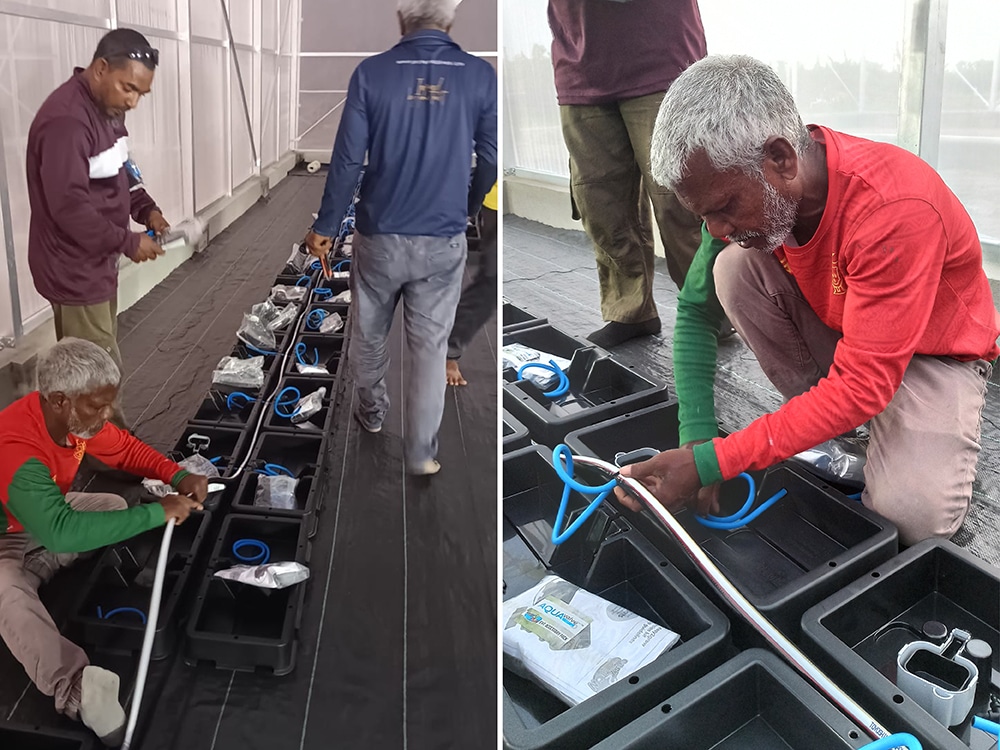
Thankfully Zahid can recommend an abundant alternative which is relatively cheap and easy to source. ‘We use cocopeat. Sometimes we use cocopeat mixed with cocochips. Perlite is a bit expensive here in Maldives.’
Whilst not too hard to get hold of, the necessity of cocopeat means growers are highly adept at managing its use and reuse. ‘Almost all farmers reuse the growing media. After harvest some of them use a fungicide while others use hydrogen peroxide to disinfect. If there is high salt accumulation in cocopeat sometimes the growers wash the media too.’
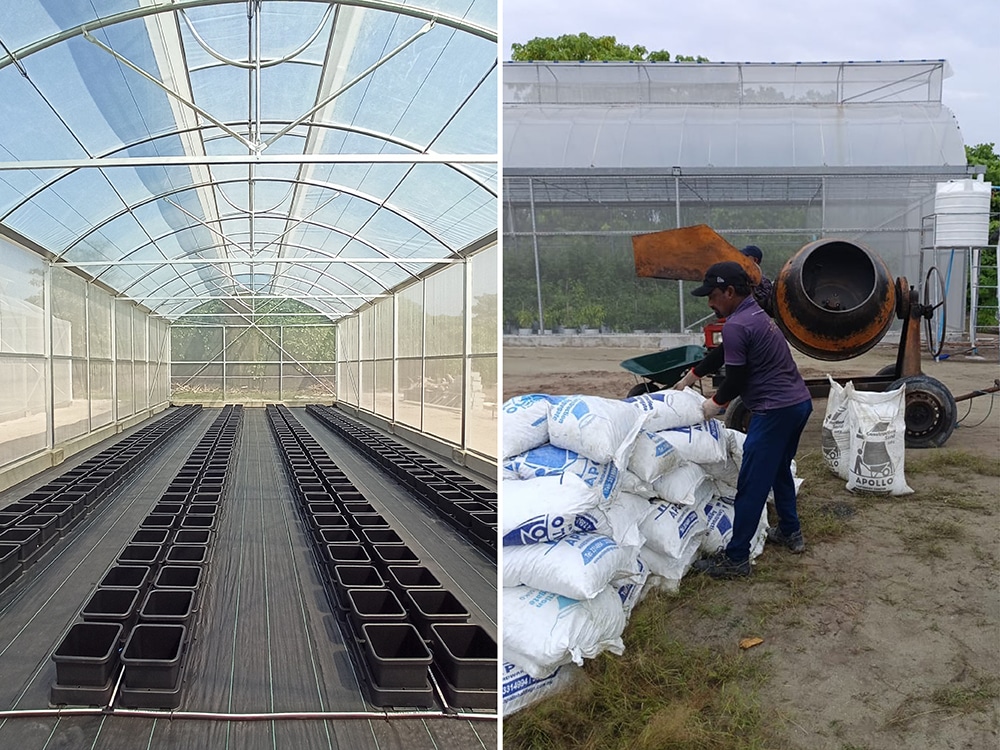
As AutoPot Watering Systems do not rely on mains water pressure they can be used off-grid, without any need for the high-EC groundwater supply. ‘Instead, most of the time farmers use rain water and sometimes desalinated water is used.’
All of the processes involved with the systems are simple, mechanical, and power-free making them a great option for the farmers who Zahid and the team are converting. ‘Sometimes they are beginners. But most of the time they are established farmers who need to change the way they have been growing and get away from bad, inefficient, unproductive practices.’
The enthusiasm with which farmers are converting has much to do with the keen market for anything and everything that can be produced domestically. For sure it’s about supplying Maldavians themselves. But there’s another hugely significant destination for crops in the Maldives.
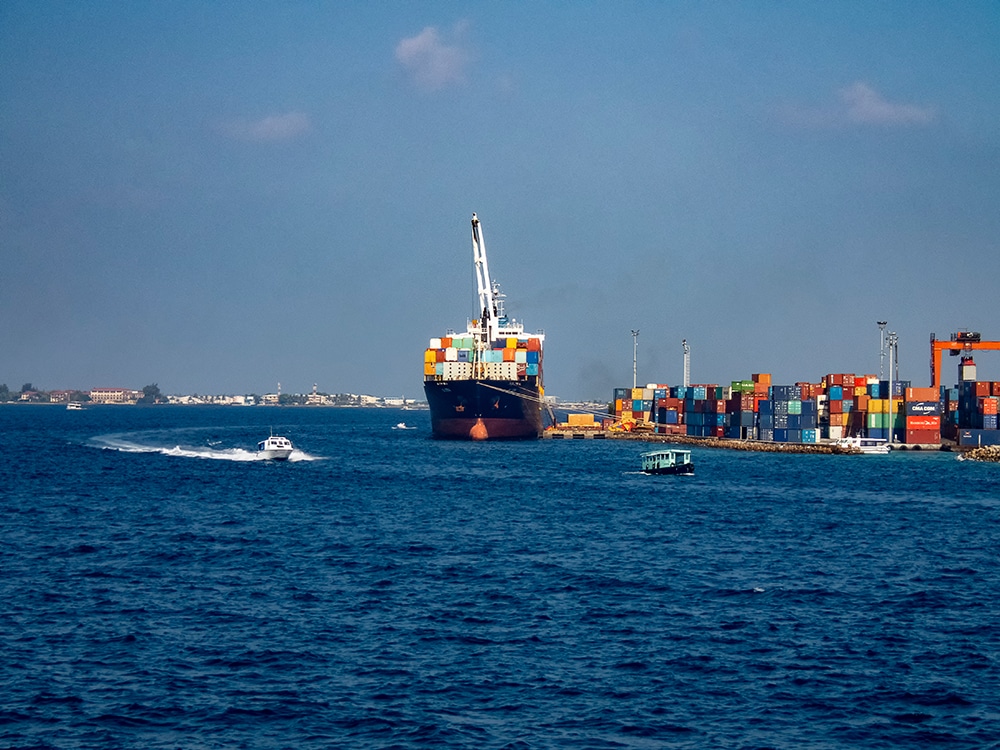
‘Tourism contributes over 28% of the GDP and accounts for nearly 60% of foreign exchange earnings in the Maldives. It directly and indirectly supports more than 80% of the economy, as sectors like construction, transportation, and fishing rely on tourism.’ But if the needs of tourists have to be served by imported produce it creates a real tension between benefits and costs.
Long distance food imports contribute to global warming. And global warming is an incredibly sensitive issue for Zahid and most other Maldavians. ‘The Maldives is highly vulnerable to climate change and rising sea levels. Over 80% of its land area is less than 1 meter above sea level.’ As it is, the country relies on imports for 90% of its food and goods, which adds to its carbon footprint.’ If the needs of tourists can be served by locally produced food that can only be a good thing.
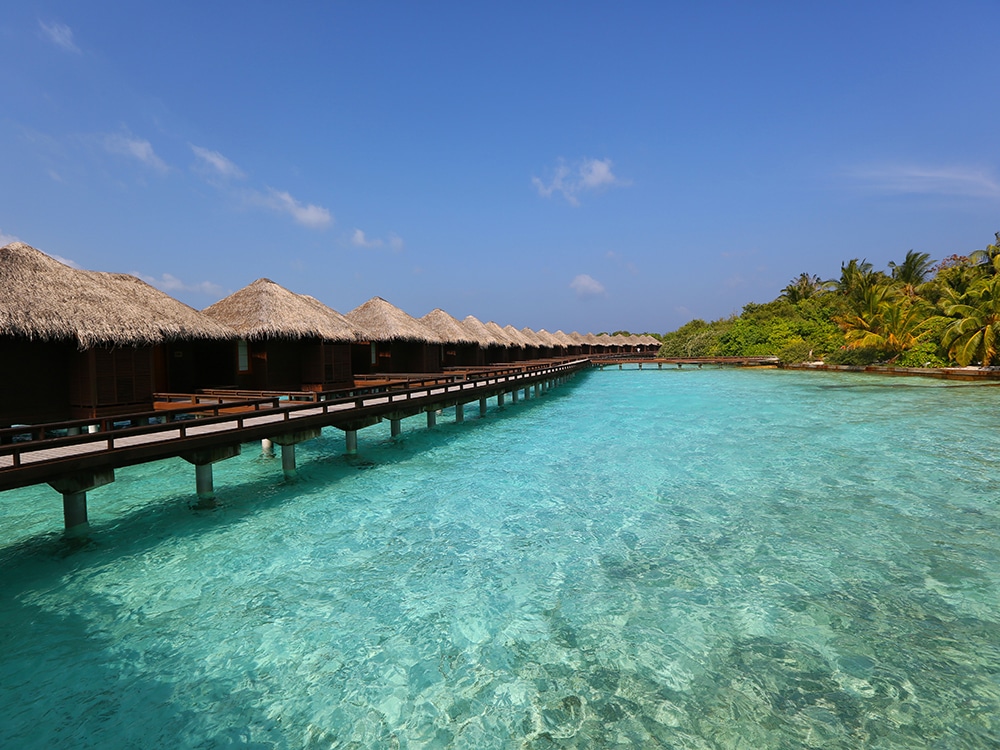
Zahid is very optimistic about the prospect of yet more AutoPot greenhouses, and with good reason. Sound horticultural, economic, and environmental arguments for their creation is driving a commitment to actually build the greenhouses. Seeing them become a reality drives yet more interest and increases belief in the idea of prosperous self sufficiency – which leads to more greenhouses, and so on.
We very much look forward to bringing you more on the progress of this exciting project. Stay up to date with this story on both Prime Maldives’ and our Insta and Facebook pages. Finally, we’d like to offer our humble thanks to Zahid and his team for their exemplary work with our systems and their time in sharing.
